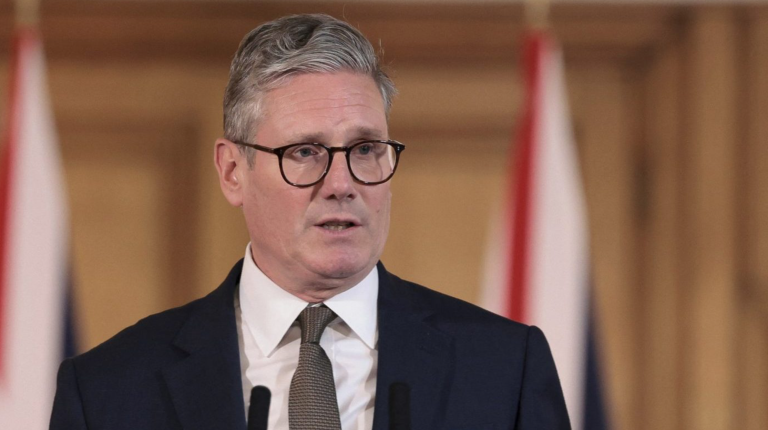
Africa is a continent of immense potential—boasting vast natural resources, a young and dynamic population, and rapidly growing economies. Yet, despite these advantages, many African nations continue to struggle with poverty, inequality, and underdevelopment. While external factors like colonialism, unfair trade policies, and climate change play a role, a critical question remains: Are Africa’s leaders themselves the biggest obstacle to progress?
This article examines the role of African leadership in stifling development, exploring issues like corruption, poor governance, political instability, and self-serving policies. It also considers counterarguments that blame systemic and external factors. Finally, it asks whether Africa’s future depends on better leadership or deeper structural reforms.
1. The Case Against African Leaders
A. Corruption: The Cancer Killing Progress

Corruption stands out as one of the most profound and persistent failures of leadership across Africa. It manifests in various forms, ranging from blatant embezzlement of funds to widespread bribery practices. These unethical actions by leaders result in the misappropriation of public resources that should be allocated for vital sectors such as infrastructure development, healthcare services, and education systems. Instead of advancing the welfare of their nations, corrupt officials often channel these funds into their own private accounts, undermining progress and perpetuating systemic inefficiencies.
- Examples:
- Nigeria has lost over $400 billion to corruption since independence (World Bank estimates).
- South Africa’s Zuma-era “State Capture” scandal siphoned billions from state enterprises.
- Angola’s Isabel dos Santos, Africa’s former richest woman, amassed wealth through state corruption.
- Impact:
- Poor public services (bad roads, failing hospitals, unreliable electricity).
- Discourages foreign investment due to distrust in institutions.
B. Authoritarianism & Power Clinging
Many African leaders refuse to leave office, manipulating constitutions, elections, and security forces to stay in power indefinitely.
- Examples:
- Paul Biya (Cameroon): Ruled for 42 years, suppressing opposition.
- Yoweri Museveni (Uganda): In power since 1986, recently changed age limits to extend his rule.
- Teodoro Obiang (Equatorial Guinea): World’s longest-serving president (since 1979).
- Impact:
- Stagnation of policies, suppression of innovation.
- Young talent flees due to lack of opportunities (“brain drain”).
C. Poor Economic Policies & Mismanagement
Many African leaders prioritize short-term gains over sustainable development, leading to debt crises and economic instability.
- Examples:
- Zimbabwe’s hyperinflation under Mugabe destroyed the economy.
- Ghana’s debt crisis worsened by reckless borrowing and spending.
- Zambia’s default on Eurobonds due to mismanaged Chinese loans.
- Impact:
- Currency collapses, unemployment, and reliance on IMF bailouts.
D. Ethnic Favoritism & Division
Instead of uniting nations, some leaders exploit ethnic divisions to maintain power, fueling conflicts.
- Examples:
- Kenya’s post-election violence (2007-08) driven by tribal politics.
- Ethiopia’s Tigray War rooted in ethnic power struggles.
- Impact:
- Civil wars, displacement, and wasted resources on conflict instead of development.
2. Counterarguments: Are Leaders Really the Main Problem?
A. Colonial Legacy & Unfair Global Systems
Critics argue that Africa’s struggles stem from historical exploitation and ongoing neo-colonialism.
- Examples:
- Franc CFA: France’s influence over the monetary systems of West African nations significantly restricts their ability to exercise full economic sovereignty, impacting their financial independence and decision-making capacity.
- Debt Traps: Loans provided by the IMF and World Bank often come with stringent conditions and restrictive policies that can severely hinder economic growth and development in the long term.
B. External Exploitation (China, Western Corporations, etc.)

Foreign powers and multinational corporations often extract Africa’s wealth without fair compensation.
- Examples:
- DRC’s cobalt mines fuel global tech, but locals earn pennies.
- Shell’s oil pollution in Nigeria has caused widespread devastation, severely impacting local communities and their livelihoods.
C. Weak Institutions & Systemic Issues
Even well-meaning leaders struggle against dysfunctional bureaucracies, weak judiciaries, and entrenched corruption networks.
- Example:
- South Africa’s ANC inherited apartheid-era systems that resist reform.
3. Case Studies: Successes & Failures
Failure: Nigeria – Oil Wealth, Yet Poverty
Despite standing as Africa’s leading oil producer, Nigeria continues to grapple with widespread poverty. This persistent issue stems largely from corrupt elites and years of systemic mismanagement that have hindered the nation’s progress. The wealth generated from oil has often failed to translate into tangible benefits for the majority of its population. See What Is Dutch Disease and How It Affects Nigeria.
Success: Rwanda – Authoritarian but Efficient
Paul Kagame’s strong-handed rule brought stability and growth, but at the cost of political freedoms.
Mixed: Botswana – Democracy & Diamonds
Astute and forward-thinking leadership successfully steered the nation clear of the notorious “resource curse,” ensuring sustainable management of natural wealth and fostering economic stability. However, despite these significant achievements, the challenge of pervasive inequality continues to cast a long shadow, highlighting the need for further reforms and inclusive growth strategies.
4. The Way Forward: Can Africa Fix Its Leadership Problem?
A. Strengthening Democracy & Term Limits
- Enforcing two-term limits to prevent dictatorship.
- Independent electoral commissions to ensure fair elections.
B. Anti-Corruption Reforms
- Whistleblower protections and transparent budgets.
- Asset recovery from stolen funds (e.g., Abacha loot).
C. Youth & Tech-Driven Change
- Young Africans are demanding accountability (#EndSARS, #ZimbabweanLivesMatter).
- Digital tools (blockchain, e-governance) can reduce corruption.
D. Pan-Africanism & Stronger Institutions
- African Union (AU) must act against coups and unconstitutional regimes.
- Regional trade (AfCFTA) reduces dependency on foreign powers.
Conclusion: Leaders Are a Major Problem, But Not the Only One
While African leaders bear significant responsibility for the continent’s struggles, they are not the sole obstacle. Colonial legacies, global exploitation, and weak institutions also play major roles. However, until African leaders prioritize good governance over self-enrichment, true development will remain elusive.
The solution? Accountability, strong institutions, and empowered citizens. Africa’s future depends not just on better leaders, but on systems that prevent bad ones from doing harm.
Final Thought
Africa doesn’t require powerful individuals to lead; what it truly needs are robust and resilient systems that can empower its people and drive sustainable progress.
- The Death of Fish Magnet and Why Kidnapping Continues to Thrive in Nigeria - August 2, 2025
- The Fall of Intelligence - July 10, 2025
- UK to Tighten Visa Rules for Nigerians and Pakistanis Due to Overstaying Concerns - May 7, 2025
Discover more from TruthPost
Subscribe to get the latest posts sent to your email.






